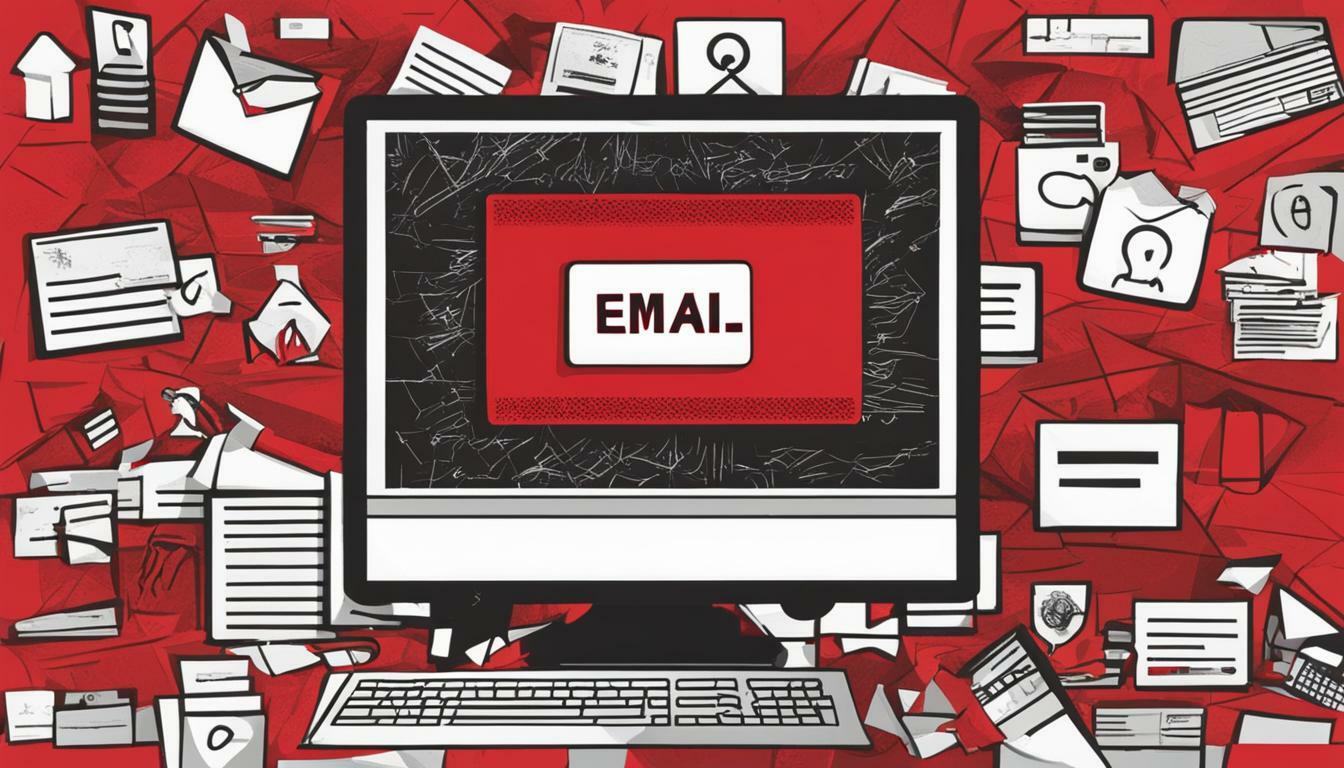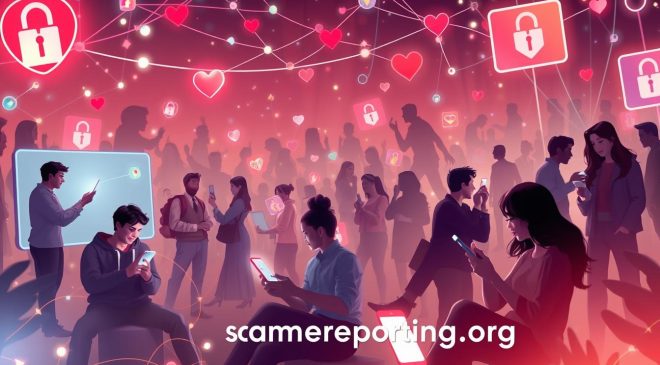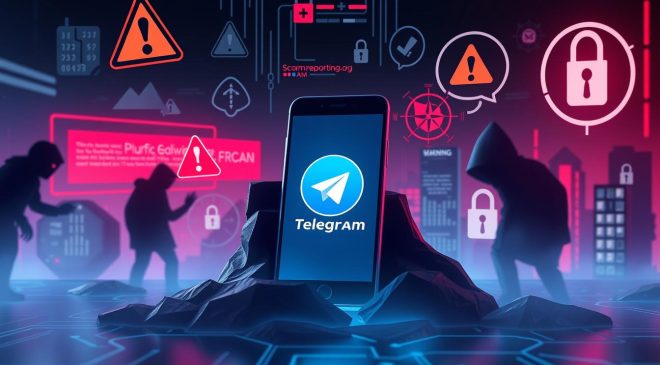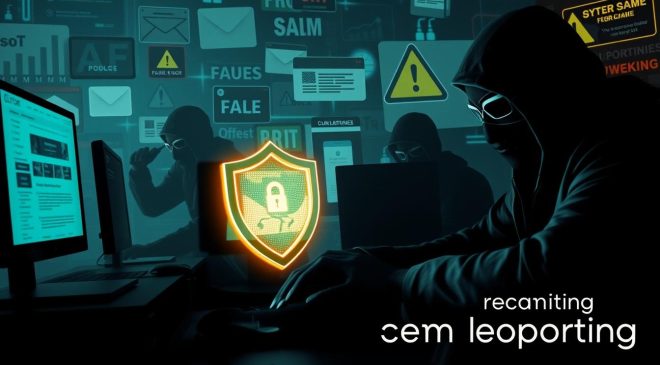
Email Threatening to Expose Video: Stay Safe & Informed
Welcome, readers. In today’s digital world, threats to online privacy and security continue to evolve. One prevalent threat is email scams related to video exposure. The fear of having a compromising video exposed to friends, family, or coworkers is understandably alarming. Therefore, it is imperative to be aware of these scams and take necessary precautions to safeguard yourself.
Throughout this article, I will provide you with essential information and strategies to help you recognize and protect yourself against email threats. By staying informed and vigilant, you can reduce the likelihood of falling victim to these scams and maintain your online safety.
Key Takeaways:
- Video exposure and blackmail scams via email threats are prevalent in the digital age.
- It is crucial to recognize red flags and tactics used by scammers to avoid falling victim to online extortion.
- Enhancing email security, adopting smart online habits, and reporting any suspicious activities can help protect against cyber threats.
Understanding Email Threats: Video Exposure and Blackmail Scams
As a professional copywriting journalist, I have encountered numerous email threats related to exposing a video. Such threats can be categorized as video exposure and blackmail scams, which prey on the fear of having a compromising video released to the public.
In a typical video exposure scam, the perpetrator sends an email claiming to have evidence of a video that could potentially damage the victim’s reputation or personal relationships. The scammer then threatens to release the video unless the victim pays a ransom or takes other specific actions demanded by the scammer.
The blackmail aspect of the scam comes into play when the scammer demands payment via cryptocurrency or other anonymous methods, making it difficult for law enforcement agencies to track down the perpetrator. In some cases, the scammer may even request the victim to perform additional illegal or compromising acts.
Recognizing Email Scams: Identifying Online Extortion Tactics
One of the best ways to protect against video exposure and blackmail scams is to learn how to recognize email scams and identify online extortion tactics. This includes being wary of unsolicited emails from unknown senders, suspicious links or attachments, and requests for personal information or payment.
Another red flag is the use of threatening or coercive language in the email. Scammers may use scare tactics to pressure the victim into complying with their demands. It is important to remember that legitimate authorities would never use such tactics to communicate with individuals.
If you receive an email threatening to expose a video or blackmail you, do not respond or engage with the scammer. Instead, report the incident immediately to relevant authorities and organizations, and seek professional advice on how to proceed.
Recognizing Email Scams: Identifying Online Extortion Tactics
As I discussed earlier, email scams related to video exposure and blackmail are becoming increasingly common. It’s vital to recognize these types of scams to avoid falling victim to them.
There are several tactics used by scammers to intimidate individuals into complying with their demands. The following are some red flags to be aware of:
- Threats of exposure: Scammers may threaten to expose sensitive or embarrassing information about you.
- Urgency: They may create a sense of urgency by pressuring you to act quickly and not take the time to assess the situation.
- Payment demands: Scammers may demand payment in exchange for not following through with their threats.
- Impersonation: They may impersonate a credible individual or organization to gain your trust.
If you receive an email with any of these characteristics, it’s essential to proceed with caution and not give in to demands. Instead, take the time to investigate the authenticity of the email and the legitimacy of the claims.
“Remember, scammers rely on fear and urgency to get you to act without thinking. Take a step back and evaluate the situation before taking any action.”
Protecting Your Privacy: Enhancing Email Security
In today’s digital age, email threats have become increasingly common. It is crucial to take steps to enhance email security and protect your privacy from potential threats such as video exposure and blackmail scams.
One of the most important steps you can take is to create strong passwords that are unique to each account. Do not use the same password across multiple accounts, and avoid using easily guessable information such as your birthdate or pet’s name. Consider using a password manager to generate and securely store strong passwords.
Another vital measure is to enable two-factor authentication (2FA) for your email account. This adds an extra layer of security by requiring a secondary form of verification, such as a code sent to your phone, in addition to your password.
Email encryption is also a valuable tool for protecting your privacy. Encryption scrambles the content of your emails, making them unreadable to anyone who does not have the encryption key. Some email providers offer built-in encryption, or you can use a third-party tool such as Pretty Good Privacy (PGP) to encrypt your messages.
It is essential to keep your email software and operating system up-to-date with the latest security patches and updates. These updates often address vulnerabilities that hackers can exploit to gain unauthorized access to your email account.
Finally, be cautious of any suspicious emails or attachments. Do not open attachments or click on links from unknown or untrusted senders, as these could contain malware that can compromise your email account or device. Always verify the authenticity of an email before clicking on any links or providing any personal information.
Safeguarding Against Cyber Threats: Online Safety Strategies
As cyber threats continue to evolve, it is crucial to implement strategies to safeguard against them. Here are some practical tips to maintain online safety:
- Regular software updates: Keeping your software up-to-date reduces the risk of exploitation by cybercriminals.
- Secure browsing habits: Avoid clicking on suspicious links or downloading attachments from unknown senders. Always verify the authenticity of a website before entering sensitive information.
- Antivirus software: Use reputable antivirus software to protect against malware, ransomware, and other types of cyber threats.
Additionally, it is important to remain vigilant about email threats related to video exposure. Avoid opening suspicious emails or clicking on links within them. If you receive an email threatening to expose a video, report it to the relevant authorities and take steps to enhance your email security.
By adopting these strategies, you can improve your online safety and protect yourself against cyber threats.
Debunking Hoaxes: Unraveling Video Blackmail Scam Myths
There is a widespread misconception that only individuals who engage in illicit activities are targeted by video blackmail scams. However, this is far from the truth. Cybercriminals often use random email addresses to send mass blackmail emails, hoping that someone will fall for their scam.
Another myth is that once a video has been recorded, there is no way to prevent scammers from releasing it. While it is true that scammers can be difficult to trace, there are ways to prevent such videos from being released. It is crucial to report these scams to the relevant authorities immediately.
Remember, falling for video blackmail scams only perpetuates the cycle of cybercrime, further fuelling criminals to continue their activities.
Finally, many victims of video blackmail scams believe that paying the requested amount will make the problem go away. However, this is not the case. Scammers are only after the money, and there is no guarantee that they will not release the video even after being paid. It is important to recognize that paying scammers only encourages them to continue their criminal activities.
Reporting Email Scams: Taking Action Against Cybercriminals
If you have received an email scam related to video exposure or blackmail, it is essential to report it to the relevant authorities. Reporting such incidents not only protects you but also helps authorities to prevent further cybercrime.
One of the first things to do is to save the email as evidence. You can take a screenshot or print the email and its headers, which can provide valuable information about the identity of the sender. Do not delete the email or respond to it in any way.
You can report email scams to the Federal Trade Commission (FTC) by forwarding the email to them at spam@uce.gov. In the subject line, include the phrase “Possible email scam.” You can also report the incident to the Cybercrime Support Network at report@cybercrimesupport.org.
If the email contains threats of violence or harm, contact your local law enforcement immediately. In addition, you can report it to the Internet Crime Complaint Center (IC3) at www.ic3.gov.
By reporting email scams, you help to prevent others from falling prey to similar scams. Remember, the more information available to authorities, the more effective they can be in taking down cybercriminals.
Staying Informed: Remaining Vigilant in the Digital Landscape
It’s easy to fall victim to email threats related to the exposure of a video. However, by staying informed and vigilant, you can protect yourself and your privacy online.
One way to stay informed is to regularly check cybersecurity news and follow trusted sources. Being aware of current threats and scams can help you recognize them and avoid falling for them.
Tip: Don’t rely on just one source for cybersecurity news. Check multiple sources to ensure you’re getting accurate and comprehensive information.
In addition to staying up-to-date, it’s important to be proactive in protecting your digital safety. This means developing smart online habits, such as regularly backing up important data and being cautious about sharing personal information online.
It’s also important to use secure browsing habits, avoid suspicious links and attachments, and utilize reputable antivirus software. By taking these steps, you can safeguard against cyber threats and prevent potential harm.
Remember, staying informed and remaining vigilant in the digital landscape is key to protecting yourself from email threats related to video exposure. By being proactive and developing smart online habits, you can maintain your digital safety and privacy.
Developing Smart Online Habits: Maintaining Digital Safety
Now that we’ve discussed the various types of email threats and the strategies for identifying and avoiding them, let’s explore some tips for maintaining digital safety on the internet. By developing smart online habits, you can reduce the risks of falling victim to email video extortion scams.
Regular Backups: It’s vital to back up your data regularly, so you don’t lose your files in case of ransomware attacks. Use external hard drives, cloud storage, or backup software to keep a copy of your files safe.
Cautious Sharing of Personal Information Online: Never share confidential information like your bank account details, social security numbers, or other sensitive data online. Hackers may use it for identity theft or other fraudulent activities.
Recommended Privacy Settings for Various Online Platforms: Set your privacy settings on your social media accounts, email, and other online platforms to private. Only accept friend or connection requests from individuals you know personally, rather than strangers who may be posing as legitimate contacts.
Use Secure Browsers: Ensure that you’re using a secure browser that blocks malicious or risky websites that may infect your device with malware. Also, use a reliable VPN to protect your online privacy.
Avoid Clicking Suspicious Links or Downloading Attachments: Scammers may use email links or attachments to send you malware or phishing attacks, so avoid clicking on them. Verify email from the sender before clicking on any links or downloading any attachments.
Keep Your Software Up-to-date: Regularly update your software, including your operating system, browser, and antivirus software, to ensure that you have the latest security patches and features.
By following these smart online habits, you can significantly reduce the risks of falling victim to cyber threats like email video extortion scam.
Conclusion
In conclusion, the threat of email scams related to video exposure and blackmail is real, and it’s important to stay informed and take steps to protect oneself. By understanding the tactics used by scammers and knowing how to recognize the red flags, individuals can avoid falling victim to these types of cyber threats. Enhancing email security, adopting smart online habits, and staying vigilant are all crucial steps in maintaining digital safety. Remember to regularly update software, avoid suspicious links and attachments, and report any suspicious activity to the relevant authorities. By following these strategies, we can all work towards a safer and more secure online landscape.
FAQ
Q: Can I report an email threatening to expose a video?
A: Yes, it is important to report any email threats you receive. You can contact relevant authorities and organizations to report the incident and help protect others.
Q: How can I recognize email scams?
A: Look out for red flags such as unsolicited emails, grammatical errors, requests for personal information or money, and threats of video exposure or blackmail. If something feels suspicious, trust your instincts and be cautious.
Q: How can I enhance my email security?
A: You can enhance your email security by using strong passwords, enabling two-factor authentication, encrypting your emails, and being cautious of clicking on suspicious links or downloading attachments.
Q: What are some strategies to safeguard against cyber threats?
A: Stay updated with the latest software updates, maintain secure browsing habits, avoid clicking on suspicious links or downloading attachments, and use reputable antivirus software to protect yourself against cyber threats.
Q: Are video blackmail scams real?
A: Video blackmail scams exist, but it is important to separate fact from fiction. Stay informed about the tactics used by cybercriminals and take proactive steps to protect your privacy and online safety.
Q: How should I report email scams?
A: If you receive an email scam, you can report it to relevant authorities such as your local law enforcement or the Federal Trade Commission (FTC). Additionally, you can forward the email to your email provider to help them fight against scams.
Q: Why is it important to stay informed about cyber threats?
A: Staying informed about cyber threats helps you stay ahead of potential dangers and take proactive measures to protect yourself. By keeping up with cybersecurity news and following trusted sources, you can enhance your digital safety.
Q: What are some smart online habits to maintain digital safety?
A: Develop habits such as regularly backing up your important data, being cautious when sharing personal information online, and adjusting privacy settings on various online platforms to maintain your digital safety.


